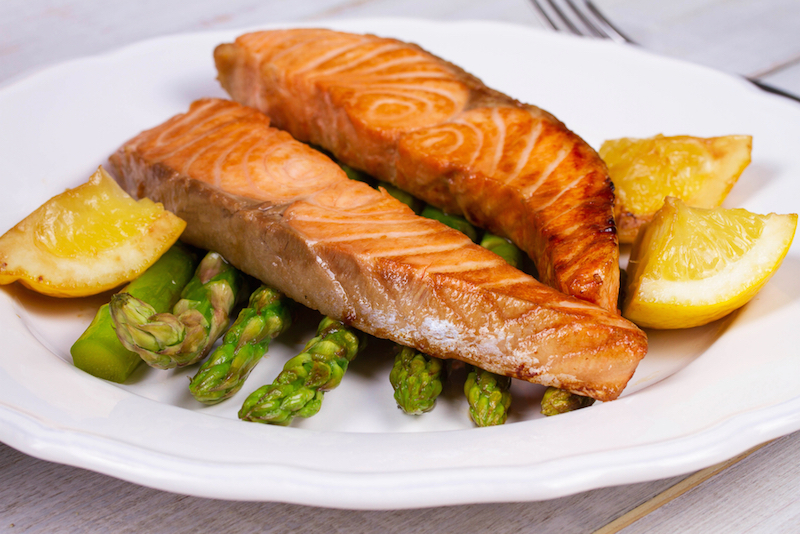Under Fire: Flame-Broiled Fish Linked with Higher Breast Cancer Risk

NEW ORLEANS — When cooked a certain way, even healthy foods may affect breast cancer risk, a new study finds.
In the study, researchers found that women who ate flamed-broiled fish more than once a week had a 2.3 times greater risk of breast cancer compared with those who ate this style of fish less than once a week.
Flame-broiled foods have come under fire in previous studies because they contain chemicals called "heterocyclic amines," which form when proteins are cooked by direct heat over an open flame (for example, by grilling, broiling or pan frying). These compounds are considered carcinogenic — meaning they can cause cancer — and have been linked in earlier research to increased breast cancer risk.
But most previous studies on heterocyclic amines have focused on red meat, said Dr. Kala Visvanathan, a professor of epidemiology and oncology at Johns Hopkins University in Baltimore and the senior author of the new study presented Monday (April 18) here at the American Association for Cancer Research's annual meeting. [Top 10 Cancer-Fighting Foods]
But whether there's a similar link for fish is an interesting question, because laboratory studies have shown that fish could potentially have some of the highest levels of these carcinogenic compounds, she said.
In the study, the researchers focused on the diets of women who had a high risk of breast cancer. This meant that all of the women in the study were either carriers of a mutation in their BRCA genes (which are linked with an increased risk of breast cancer), or had a family member who had either breast cancer or ovarian cancer. [5 Things Women Should Know About Ovarian Cancer]
The researchers compared about 200 women who had been diagnosed with breast cancer within the past two years to about 400 women without breast cancer, who served as controls. The women in the study were asked how frequently they ate flame-broiled fish, chicken and red meat.
Sign up for the Live Science daily newsletter now
Get the world’s most fascinating discoveries delivered straight to your inbox.
The researchers found that women's flame-broiled fish intake was linked, in particular, to a specific type of breast cancer called "estrogen-receptor positive" breast cancer.
The researchers noted that they also found that women's body mass index (BMI) played a role in their cancer risk. Specifically, the risk was greater for women who had BMIs over 30 (considered obese), while the risk for women with BMIs under 25 (considered normal weight) was not affected by eating more flame-broiled fish.
Eating flame-broiled red meat also appeared to increase women's risk of breast cancer. However, the association was not statistically significant (meaning it could have been caused by chance).
The association was much stronger with flame-broiled fish than with flame-broiled red meat, Visvanathan told Live Science. (However, that may have been because the women in the study were generally eating more fish than red meat, she added.)
As for whether women should avoid eating flame-broiled fish, more research is still needed, Visvanathan said. One way to confirm these new findings would be to look at the levels of heterocyclic amines in breast cancer tissue, she said. Or, researchers could look at how breast cancer patients with high intakes of flame-broiled fish progress over time (if they get better or worse), she said.
Still, the study is a reminder that it's not just what foods you eat, but how they are prepared, that matters, Visvanathan said. It may be beneficial to eat flame-broiled fish less often and instead opt for baked or boiled fish, she said.
The findings have not been published in a peer-reviewed journal.
Follow Sara G. Miller on Twitter @SaraGMiller. Follow Live Science @livescience, Facebook & Google+. Originally published on Live Science.










